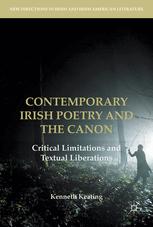

Most ebook files are in PDF format, so you can easily read them using various software such as Foxit Reader or directly on the Google Chrome browser.
Some ebook files are released by publishers in other formats such as .awz, .mobi, .epub, .fb2, etc. You may need to install specific software to read these formats on mobile/PC, such as Calibre.
Please read the tutorial at this link: https://ebookbell.com/faq
We offer FREE conversion to the popular formats you request; however, this may take some time. Therefore, right after payment, please email us, and we will try to provide the service as quickly as possible.
For some exceptional file formats or broken links (if any), please refrain from opening any disputes. Instead, email us first, and we will try to assist within a maximum of 6 hours.
EbookBell Team

4.0
86 reviews‘This book makes an important intervention into debates about influence and contemporary Irish poetry. Supported throughout by incisive reflections upon allusion, word choice, and formal structure, Keating brings to the discussion a range of new and lesser known voices which decisively complicate and illuminate its pronounced concerns with inheritance, history, and the Irish poetic canon.’ — Steven Matthews, Professor of English Literature, University of Reading, UK, and author of Irish Poetry: Politics, History, Negotiation and Yeats As Precursor
This book is about the way that contemporary Irish poetry is dominated and shaped by criticism. It argues that critical practices tend to construct reductive, singular and static understandings of poetic texts, identities, careers, and maps of the development of modern Irish poetry. This study challenges the attempt present within such criticism to arrest, stabilize, and diffuse the threat multiple alternative histories and understandings of texts would pose to the formation of any singular pyramidal canon. Offered here are detailed close readings of the recent work of some of the most established and high-profile Irish poets, such as Paul Muldoon and Medbh McGuckian, along with emerging poets, to foreground an alternative critical methodology which undermines the traditional canonical pursuit of singular meaning and definition through embracing the troubling indeterminacy and multiplicity to be found within contemporary Irish poetry.